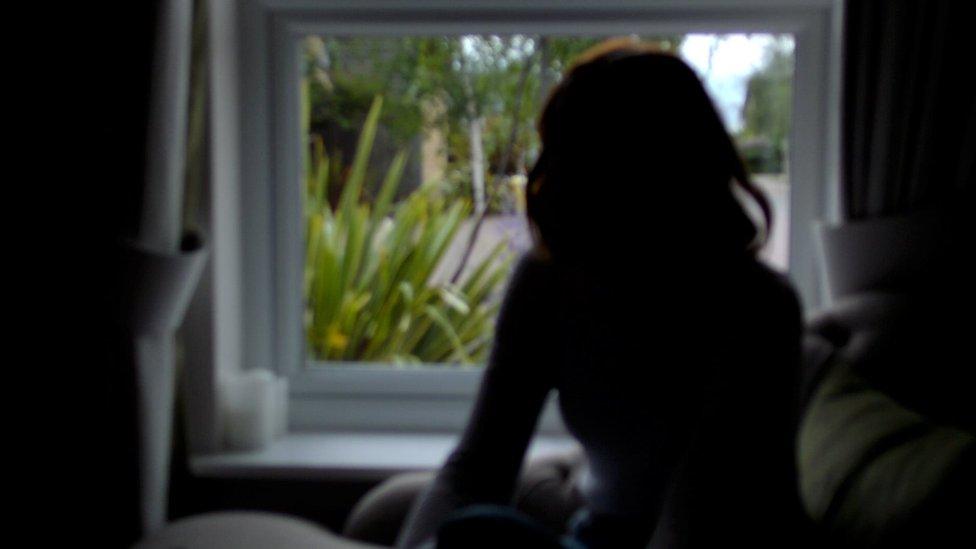Julian Roddis: Masseur who filmed 900 women has jail term reduced
- Published

Julian Roddis was jailed for voyeurism
A woman whose actions caught a masseur who secretly filmed more than 900 women as they got undressed said a reduction in his jail term was "abysmal".
Julian Roddis, 50, from Peterborough was caught when a suspicious-looking alarm clock was later found to have been used to make about 2,000 videos.
His jail term was reduced from four years to three at the Court of Appeal.
The woman who caught him, who was pregnant at the time, said the sentence "doesn't feel like justice".
He was originally sentenced at Peterborough Crown Court in July after he admitted nine counts of voyeurism.
The woman who caught him said her brother-in-law had bought her the massage with Roddis when she was five-and-a-half months pregnant.
After seeing the clock linked up to a laptop and a red light, she said that following the appointment she went on to Amazon, searched "digital clock, hidden camera" and it was the first one that came up.

Roddis used a camera disguised as digital clock to film his victims
Having made a complaint about how police originally handled the case after her discovery, the victim said officers went to Roddis and he admitted his crimes.
She said only nine victims of Roddis had been identified at the time he was convicted.
Speaking to the BBC's Victoria Derbyshire, who was sitting in for Jeremy Vine on BBC Radio 2, she said: "It was only a couple of days ago that I was contacted by the detective who was responsible for the case and she said that he'd put in an appeal that the sentence was too harsh.
"The Court of Appeal granted his appeal and reduced it to three years, so it's essentially, what, four months per identified victim?"

She said she was now "constantly on edge looking for something that doesn't sit right" when she went out
"It's abysmal, isn't it?," she added.
"What a breach of our privacy and how vulnerable the victims were, it doesn't feel like justice at all to have such a short sentence for that."
She added she felt it "further highlights how crimes such as this are not taken seriously, particularly crimes against women".
The court has told the BBC that the reasons for the decision in the judgement are usually published six weeks after the judgement has been made.

Find BBC News: East of England on Facebook, external, Instagram, external and Twitter, external. If you have a story suggestion email eastofenglandnews@bbc.co.uk, external
Related topics
- Published21 August 2021

- Published9 July 2021
